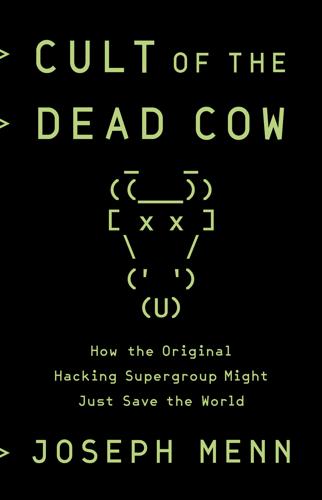
Cult of the Dead Cow: How the Original Hacking Supergroup Might Just Save the World
by
Joseph Menn
Published 3 Jun 2019
Members of Congress condemned WikiLeaks, and a federal criminal investigation put pressure on PayPal, Visa, and others that helped people donate to the website. The sprawling online activist group known as Anonymous then coordinated denial-of-service attacks on PayPal and Visa, effectively commandeering the mantle of hacktivism. The story of Anonymous, told more fully in books by anthropologist Gabriella Coleman and journalist Parmy Olson, is fascinating and complex. It also owes a little of its culture to cDc. One of cDc’s good friends and onetime web hoster, Tom Dell, had written software for Patrick Kroupa’s MindVox and then run Rotten.com, an early shock site that was a forerunner of 4chan. 4chan was mostly teenage boys chatting about pictures, and posts were labeled “Anonymous” by default.
…
The most impressive story: as part of Anonymous’s Operation Tunisia, during the Arab Spring democratic uprisings, he personally defaced the web page of the country’s prime minister, who had approved mass hacking of citizens. But that and the other relatively high-minded feats proved impossible to confirm. Author Olson described the Tunisian defacement as Monsegur’s work, citing him as the only source. Professor Gabriella Coleman, who was perceived as sympathetic, obtained chat logs and said Monsegur did not lead the team that performed the Tunisian defacing. In any case, even Monsegur’s few remaining supporters would have to agree he was an inveterate liar. His more prosaic crimes, such as stealing car parts and credit card numbers, were no mystery at all.
…
People involved in the process said that the prior regime had had a leadership vacuum and consistently played down what many people told them about Jake. “What you tolerate and don’t tolerate defines you,” one of them said. New directors included the EFF’s Cindy Cohn, cryptography experts Bruce Schneier and Matt Blaze, and Gabriella Coleman, the anthropologist who chronicled Anonymous. After a few days, Barlow’s Freedom of the Press Foundation, which by now had added Snowden to its board, dropped Jake as an unpaid advisor. Noisebridge, a warehouse-sized San Francisco hacker space Jake had cofounded, said he could not come back.
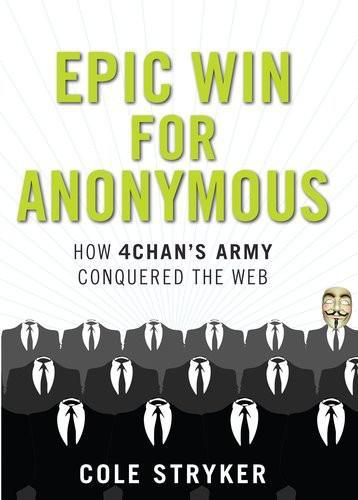
Epic Win for Anonymous: How 4chan's Army Conquered the Web
by
Cole Stryker
Published 14 Jun 2011
The mask had previously become a vague symbol of faceless rebellion, popularized in 2005 in the film adaptation of Alan Moore’s V for Vendetta, in which a masked anonymous figure incites a massive anarchic rebellion against an oppressive police state. The masks allow Scientology protestors to remain anonymous during real-life protests, and also grant them a perceived heroic flair. By the summer of 2008, Anonymous had grown beyond the confines of 4chan. Gabriella Coleman, an anthropologist and leading scholar specializing in the documentation of hacker culture, emphasizes the diversity of the group. She tells me that although there are many young people involved in Anonymous, the perspective of “angst-ridden teenagers with no lives is a misconception.” I think there’s a kind of hypersociality among these people.
…
Andreas Heldal-Lund, founder of the anti-Scientology website Operation Clambake, says, “Attacking Scientology like that will just make them play the religious persecution card. They will use it to defend their own counter actions when they try to shatter criticism and crush critics without mercy.” However, some critics have formed alliances with Anonymous when they agreed to stop DDoSing. Gabriella Coleman argues that Anonymous’s attacks have done some real good. Scientology has received so much negative attention that they’ve refrained from legal intimidation tactics. If I had released some of the papers I’ve released recently six years ago, I would have been embroiled in legal battles. Anonymous really changed the landscape.
…
Because they’re operating anonymously and in a lulzy fashion (for example, posting news stories about Tupac Shakur’s New Zealand whereabouts), they may as well be operating under the Anonymous banner. Their methods, motivations, and aesthetic are identical, however they don’t seem to recruit or share Anonymous’s populist ideals. And unlike Anonymous, they’re a discreet group of skilled individuals which could conceivably be dismantled. Gabriella Coleman guesses that it’s impossible to know who is responsible for the Sony hack. It’s just impossible to verify, because there is a very well-organized cybercrime mafia that exists in Russia and Bulgaria and other places, and they can very much exploit what Anonymous is doing. There’s a well-known security flaw at Sony, and the next thing you know they steal all the credit cards and then someone at Sony claims it’s Anonymous.
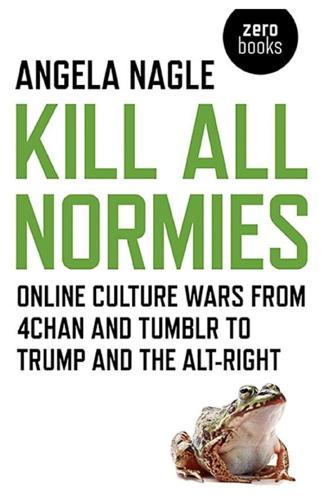
Kill All Normies: Online Culture Wars From 4Chan and Tumblr to Trump and the Alt-Right
by
Angela Nagle
Published 6 Jun 2017
His language and ideas influenced anarchism and later, online cultures that advocated illegal downloading, anonymity, hacking and experiments like bitcoin. Echoes of John Perry Barlow’s manifesto ‘A Declaration of the Independence of Cyberspace’ can be seen in this earlier period of Anon culture and in analyses that reflect a more radical horizontalist politics, like Gabriella Coleman’s work. Barlow was one of the founders of the Electronic Frontier Foundation, anarchist hackers and defenders of an Internet free of state intervention, capitalist control and monopolizing of the online world. In a similar style to the rhetoric of 4chan and Anonymous (‘we are legion’), it warned: Governments of the Industrial World, you weary giants of flesh and steel, I come from Cyberspace, the home of Mind.
…
American writer David Auerbach explained that one of the defining features of what he called A-culture, or anonymous chan culture, was ‘the constant hazing of n00bs through argot and complex conventions and elite technical knowledge polices the boundaries of the subculture to inoculate it from massification.’ Gabriella Coleman wrote that ‘trolling proliferated and exploded at the moment the Internet became populated with non-technologically-minded people’ and went on to say ‘Trolls work to remind the masses that have lapped onto the shores of the Internet that there is a class of geek who, as their name suggests, will cause Internet grief, hell, misery.’
…
She characterized Fox News’ unflattering description of 4chan trolls as an attempt to ‘maximize audience antipathy’ toward them and said ‘mainstream media outlets aim to neutralize a particularly counter-hegemonic cultural space.’ As late as 2014, when 4chan was full of extreme racist and misogynist content, Gabriella Coleman wrote in much more positive tones again about the hacker cultures that had emerged from it: What began as a network of trolls has become, for the most part, a force for good in the world. The emergence of Anonymous from one of the seediest places on the Internet is a tale of wonder, of hope, and of playful illusions.
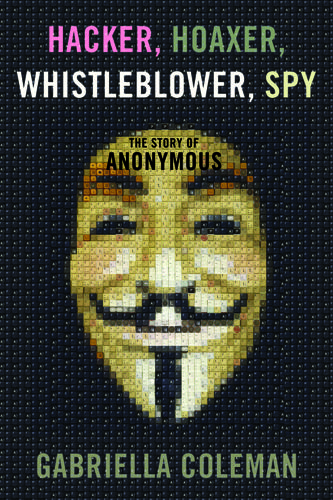
Hacker, Hoaxer, Whistleblower, Spy: The Story of Anonymous
by
Gabriella Coleman
Published 4 Nov 2014
Hal Abelson, “The Lessons of Aaron Swartz” technologyreview.com, October 4, 2013. 24. Gabriella Coleman, “Gabriella Coleman’s Favorite News Stories of the Week,” techdirt.com, Oct. 12, 2013. 25. Miller McPherson, Lynn Smith-Lovin, and James M Cook, “Birds of a Feather: Homophily in Social Networks,” Annual Review of Sociology, Vol. 27 (2001): 415–44. 26. Roli Varma, “Why So Few Women Enroll in Computing? Gender and Ethnic Differences in Students’ Perception,” Computer Science Education 20(4) (2010): 301-316. 27. For more precise figures, see Christina Dunbar Hester and Gabriella Coleman, “Engendering Change? Gender Advocacy in Open Source,” June 26, 2012, last accessed July 9, 2014, available at http://culturedigitally.org/2012/06/engendering-change-gender-advocacy-in-open-source/. 28.
…
hacker, hoaxer, whistleblower, spy the many faces of anonymous Gabriella Coleman The partial or total reproduction of this publication, in electronic form or otherwise, is consented to for noncommercial purposes, provided that the original copyright notice and this notice are included and the publisher and the source are clearly acknowledged. Any reproduction or use of all or a portion of this publication in exchange for financial consideration of any kind is prohibited without permission in writing from the publisher. First published by Verso 2014 © Gabriella Coleman 2014 All rights reserved The moral rights of the author have been asserted 1 3 5 7 9 10 8 6 4 2 Verso UK: 6 Meard Street, London W1F 0EG US: 20 Jay Street, Suite 1010, Brooklyn, NY 11201 www.versobooks.com Verso is the imprint of new left books ISBN-13: 978-1-78168-583-9 eISBN-13: 978-1-78168-584-6 (US) eISBN-13: 978-1-78168-689-8 (UK) British Library Cataloguing in Publication Data A catalogue record for this book is available from the British library Library of Congress Cataloging-in-Publication Data A catalog record for this book is available from the library of congress Typeset in Sabon by MJ & N Gavan, Truro, Cornwall Printed in the US by Maple Press I dedicate this book to the legions behind Anonymous—those who have donned the mask in the past, those who still dare to take a stand today, and those who will surely rise again in the future.
…
Thankfully, that is not what they had in mind. It turns out that they didn’t ban me from reentering the channel. And so ten minutes later, racked by anxiety, I logged back on: biella: hello q Topiary biella: sorry about that i was away cooking biella: this is me biella: http://steinhardt.nyu.edu/faculty_bios/view/Gabriella_Coleman biella: i have referred many reporters here biella: and am writing/presenting on Anonymous They responded immediately: Topiary: Hi biella, apologies for the kick. biella: no it is ok biella: you gave fair warning :-) and i have been too too idle biella: more than i would like Topiary: We’re just usually very strict and sometimes a little paranoid of unidentified users in here. […] Topiary: I liked what I read in your link.
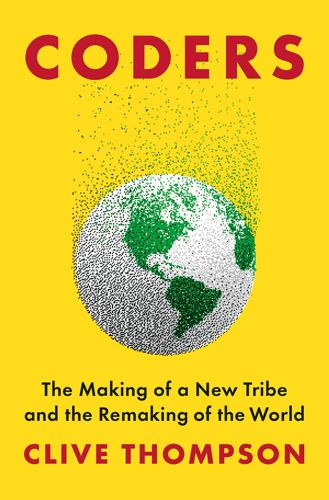
Coders: The Making of a New Tribe and the Remaking of the World
by
Clive Thompson
Published 26 Mar 2019
Or I’d page idly through coding blogs, until I found a fun new “library”—a module of code prewritten, that you can use to help create a new program of your own. (Heyyy, a new way of doing dataviz in JavaScript using info hoovered out of Google Sheets! Maybe I should play around with that for a few hours.) I craved those moments of absolute clarity and success, the moment when the program came to life, doing precisely what I asked it to. Gabriella Coleman is an anthropologist friend of mine who has closely studied hacker culture for years. As a writer herself, she noticed something interesting about the act of coding versus scribbling. “You don’t have ‘coder’s block’ the way you have ‘writer’s block,’” she told me. “Of course some writers really love writing.
…
Now the alarm was really raised, and not just among cypherpunks. Coders and hackers of all stripes flipped out. From their point of view, corporate America was using a new copyright law to criminalize the very act of writing code. “For them, the lawsuits were an attack on their right to tinker, to write code,” notes Gabriella Coleman, an anthropologist who has closely studied hacker culture. “It was the moment when they really began to say that code was speech, and these laws were the government making speech illegal. They were all about sharing, showing their code, and now they’re being told that can be against the law.”
…
Along the way to writing Coders, I’ve been fortunate to talk to many brilliant folks who offered invaluable feedback and conversation. That includes Max Whitney, Fred Benenson, Tom Igoe, Michelle Tepper, Saron Yitbarek, Katrina Owens, Cathy Pearl, Tim O’Reilly, Caroline Sinders, Heather Gold, Ian Bogost, Marie Hicks, Anil Dash, Robin Sloan, danah boyd, Bret Dawson, Evan Selinger, Gary Marcus, Gabriella Coleman, Greg Baugues, Holden Karau, Jessica Lam, Karla Starr, Mike Matas, Paul Ford, Ray Ozzie, Ross Goodwin, Scott Goodson, Zeynep Tufekci, Steve Silberman, Tim Omernick, Emily Pakulski, Darius Kazemi, Cyan Banister, Craig Silverman, Chris Coyier, Chet Murthy, Chad Folwer, Brendan Eich, Lauren McCarthy, Annette Bowman, Allison Parrish, Dan Sullivan, Grant Paul, Guido van Rossum, Jens Bergensten, Mark Otto, Mitch Altman, Peter Skomoroch, Jimoh Ovbiagele and all the hackers at Ross Intelligence, Rob Graham, Steve Klabnik, Rob Liguori, Adam D’Angelo, Belle Cooper, Dug Song, Kim Zetter, David Silva, Sam Lang, Ron Jeffries, Susan Tan, and John Reisig.
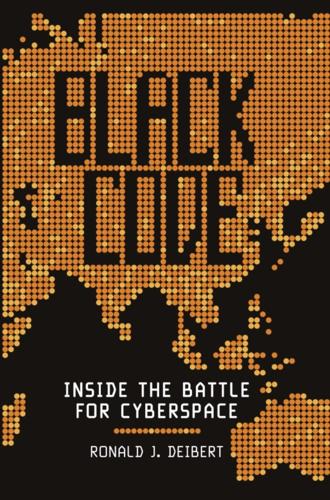
Black Code: Inside the Battle for Cyberspace
by
Ronald J. Deibert
Published 13 May 2013
The relationship between the Occupy Movement and Anonymous is detailed in Sean Captain, “The Real Role of Anonymous in Occupy Wall Street,” Fast Company, October 17, 2011, http://www.fastcompany.com/1788397/the-real-role-of-anonymous-at-occupy-wall-street. 8 is it wise to actually encourage DDoS attacks: Yochai Benkler explains why Anonymous should not be viewed as a threat to national security in “Hacks of Valor,” Foreign Affairs, April 4, 2012, http://www.foreignaffairs.com/articles/137382/yochai-benkler/hacks-of-valor. 9 One of the few to study this question in depth: Gabriella Coleman’s work offers a comprehensive history and analysis of Anonymous: Gabriella Coleman “Our Weirdness Is Free: The Logic of Anonymous – Online Army, Agent Chaos, and Seeker of Justice,” Triple Canopy (2012), http://canopycanopycanopy.com/15/our_weirdness_is_free; and “Peeking Behind the Curtain at Anonymous: Gabriella Coleman at TEDGlobal 2012,” TED Blog, June 27, 2012, http://blog.ted.com/2012/06/27/peeking-behind-the-curtain-at-anonymous-gabriella-coleman-at-tedglobal–2012/. 10 MIT Museum Hack archivist: A history of MIT hacks is detailed in T.F.
…
At the same time, it is not something that should be treated as a national security threat. Putting aside the “who” and the “how” of Anonymous, the deeper question is why? Why has Anonymous erupted now, and what does this phenomenon represent? One of the few to study this question in depth is McGill University anthropologist Gabriella Coleman (who admits that after years of analyzing Anonymous she still has trouble answering the question, “Who is Anonymous?”). Anonymous is not an organization, Coleman believes, it’s a name adopted by a range of groups to describe a wide array of actions linked in spirit and that share a certain disdain for authority.
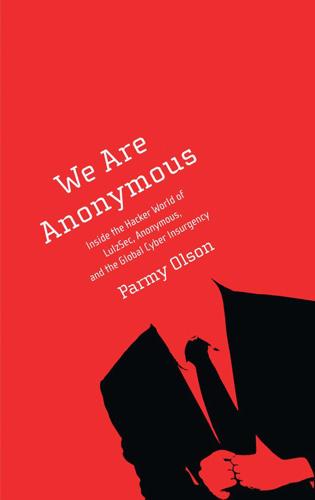
We Are Anonymous: Inside the Hacker World of LulzSec, Anonymous, and the Global Cyber Insurgency
by
Parmy Olson
Published 5 Jun 2012
Some key characters, like William or Sabu, have volatile personalities, and in hearing their extraordinary stories, you, the reader, will come to learn about social engineering, hacking, account cracking, and the rise of the online disruptor perhaps more engagingly than if you read about these techniques alone. There are many people in Anonymous who are not the subject of police investigations like the ones featured in this book, and they also seek to uphold genuine standards of legality and political activism. For other perspectives on Anonymous, keep an eye out for work by Gabriella Coleman, an academic who has been following Anonymous for several years, and a book on Anonymous by Gregg Housh and Barrett Brown, due out in 2012. The documentary We Are Legion by Brian Knappenberger also gives more focus to the political activism of Anonymous. Part 1 We Are Anonymous Chapter 1 The Raid Across America on February 6, 2011, millions of people were settling into their couches, splitting open bags of nachos, and spilling beer into plastic cups in preparation for the year’s biggest sporting event.
…
Some of the more popular Anonymous Twitter feeds simply tweeted the news, unable to provide much comment. One suggested the arrests were like cutting off the head of a hydra; more would grow back. Anonymous, the implication was, would bounce back from this. Jennifer Emick had a field day, pointing out on Twitter that Anonymous was now as good as dead. Gabriella Coleman, a Wolfe Chair in Scientific and Technological Literacy at McGill University in Montreal, was one of the rare few to meet Sabu in person while living in New York. He was not so different from his online persona, she remembered. Though she’d studied Anonymous for years, Coleman was in shock. She had suspected Sabu was up to something (why else would he meet?)
…
I also believe that people, no matter how sociopathic, narcissistic, or duplicitous they may seem to be, have a genuine urge to tell their stories and carve out some sort of legacy. I believe that is why it helped that, when I first started speaking in March 2011 to the hackers who hit HBGary and then formed LulzSec, I told them their interviews would be contributing to a book I was writing about Anonymous. In addition, Gabriella Coleman, now Wolfe Chair in Scientific and Technological Literacy at McGill University in Montreal, Canada, regularly provided me with a refreshing dose of clarity on who Anonymous was as a collective and how it worked. Coleman has shown extraordinary dedication to studying the Anonymous phenomenon.

Fancy Bear Goes Phishing: The Dark History of the Information Age, in Five Extraordinary Hacks
by
Scott J. Shapiro
“where it will end up”: David E. Sanger, The Perfect Weapon: War, Sabotage, and Fear in the Cyber Age (New York: Crown, 2018), 224. weaponize it: Hackers call this type of operation “hack-and-leak.” Gabriella Coleman has termed it a public interest hack: “a hack that will interest the public due to the hack and the data/documents.” Coleman claims that the hacktivist collective known as Anonymous innovated the public-interest hack around 2007: Gabriella Coleman, “The Public Interest Hack,” Limn, 2017, https://limn.it/articles/the-public-interest-hack. released the memo: “Joint Statement from the Department of Homeland Security and Office of the Director of National Intelligence on Election Security,” October 7, 2016, https://www.dhs.gov/news/2016/10/07/joint-statement-department-homeland-security-and-office-director-national.
…
expense of advertising and supporting the product: Karger et al., “Retrospective,” 1163. FOSS: For the locus classicus of FOSS, see Richard Stallman, “GNU Manifesto,” March 1985, http://ftp.math.utah.edu/pub/tex/bib/toc/dr-dobbs-1980.html#10(3): March 1985. For an excellent ethnography of the FOSS LINUX/Debian community, see Gabriella Coleman, Coding Freedom: The Ethics and Aesthetics of Hacking (Princeton, NJ: Princeton University Press, 2012). all bugs are shallow: Linus’s law was formulated by Eric S. Raymond in The Cathedral and the Bazaar (Sebastopol, CA: O’Reilly Media, 1999). Raymond named his law in honor of Linus Torvalds, the first developer of the Linux kernel.
…
, Josephine Wolff, You’ll See This Message When It Is Too Late: The Legal and Economic Aftermath of Cybersecurity Breaches (Cambridge, MA: MIT Press, 2018). Recent anthropological work on hackers focuses on social upcode, the norms and rules of the hacker/cybersecurity community. See, e.g., Gabriella Coleman, Hacker, Hoaxer, Whistleblower, Spy: The Many Faces of Anonymous (London: Verso, 2014). Economic analysis: See, e.g., Ross Anderson, “Why Information Security Is Hard—An Economic Perspective,” Proceedings 17th Annual Computer Security Applications Conference, 2001, https://www.acsac.org/2001/papers/110.pdf.
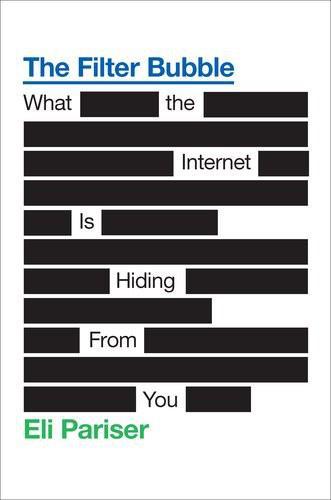
The Filter Bubble: What the Internet Is Hiding From You
by
Eli Pariser
Published 11 May 2011
Coders sometimes harbor God impulses; they sometimes even have aspirations to revolutionize society. But they almost never aspire to be politicians. “While programming is considered a transparent, neutral, highly controllable realm ... where production results in immediate gratification and something useful,” writes NYU anthropologist Gabriella Coleman, “politics tends to be seen by programmers as buggy, mediated, tainted action clouded by ideology that is not productive of much of anything.” There’s some merit to that view, of course. But for programmers to shun politics completely is a problem—because increasingly, given the disputes that inevitably arise when people come together, the most powerful ones will be required to adjudicate and to govern.
…
One of the best parts of the writing process was the opportunity to call up or sit down with extraordinary people and ask them questions. I’m thankful to the following folks for responding to my inquiries and helping inform the text: C. W. Anderson, Ken Auletta, John Battelle, Bill Bishop, Matt Cohler, Gabriella Coleman, Dalton Conley, Chris Coyne, Pam Dixon, Caterina Fake, Matthew Hindman, Bill Joy, Dave Karpf, Jaron Lanier, Steven Levy, Diana Mutz, Nicholas Negroponte, Markus Prior, Robert Putnam, John Rendon, Jay Rosen, Marc Rotenberg, Douglas Rushkoff, Michael Schudson, Daniel Solove, Danny Sullivan, Philip Tetlock, Clive Thompson, and Jonathan Zittrain.
…
Benjamin Jowett (Oxford, UK: Clarendon Press, 1871), 559. 166 “We are as Gods”: Stewart Brand, Whole Earth Catalog (self-published, 1968), accessed Dec. 16, 2010, http://wholeearth.com/issue/1010/article/195/we.are.as.gods. 167 “make any man (or woman) a god”: Steven Levy, Hackers: Heroes of the Computer Revolution (New York: Penguin, 2001), 451. 167 “having some troubles with my family”: “How Eliza Works,” accessed Dec. 16, 2010, http://chayden.net/eliza/instructions.txt. 168 “way of acting without consequence”: Siva Vaidyanathan, phone interview with author, Aug. 9, 2010. 168 “not a very good program”: Douglas Rushkoff, interview with author, New York, NY, Aug. 25, 2010. 168 “politics tends to be seen by programmers”: Gabriella Coleman, “The Political Agnosticism of Free and Open Source Software and the Inadvertent Politics of Contrast,” Anthropological Quarterly, 77, no. 3 (Summer 2004): 507–19, Academic Search Premier, EBSCOhost. 170 “addictive control as well”: Levy, Hackers, 73. 172 “Howdy” is a better opener than “Hi”: Christian Rudder, “Exactly What to Say in a First Message,” Sept. 14, 2009, accessed Dec. 16, 2010, http://blog.okcupid.com/index.php/online-dating-advice-exactly-what-to-say-in-a-first-message. 173 “hackers don’t tend to know any of that”: Steven Levy, “The Unabomber and David Gelernter,” New York Times, May 21, 1995, accessed Dec. 16, 2010, www.unabombers.com/News/95-11-21-NYT.htm. 174 “engineering relationships among people”: Langdon Winner, “Do Artifacts Have Politics?”
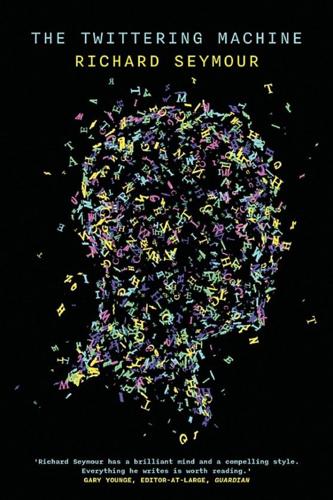
The Twittering Machine
by
Richard Seymour
Published 20 Aug 2019
From Project Chanology, wherein 4chan users targeted the Church of Scientology . . . Patrick Barkham, ‘Hackers declare war on Scientologists amid claims of heavy-handed Cruise control’, Guardian, 4 February 2008. 24. Gabriella Coleman, basing her analysis on Lewis Hyde’s classic analysis . . . Benjamin Radford, Bad Clowns, University of New Mexico Press: Albuquerque, NM, 2016; Gabriella Coleman, Hacker, Hoaxer, Whistleblower, Spy: The Many Faces of Anonymous, Verso: London and New York, 2014. 25. When Stranger Things actor Millie Bobby Brown quit Twitter . . . Alex Abad-Santos, ‘The “Millie Bobby Brown is homophobic” meme is absurd, but that doesn’t mean it’s harmless’, Vox (www.vox.com), 15 June 2018; Roisin O’Connor, ‘Millie Bobby Brown quits Twitter after being turned into an “anti-gay” meme’, the Independent, 14 June 2018. 26.
…
This puts a different perspective on the lauded amorality of trolls. They were not, in this case, doing it for the lulz. Their punishment had a purpose. Many analysts identify trolls as subversive ‘tricksters’, waging indiscriminate war on social norms. The troll is a ‘self-appointed cultural critic’, as Benjamin Radford puts it. Gabriella Coleman, basing her analysis on Lewis Hyde’s classic analysis of the trickster as a ‘boundary crosser’ and spirit of ‘mischief’, sees trolls as embodying the archetype.24 Even the white-supremacist incitements of the neo-Nazi troll Andrew Auernheimer, known as ‘weev’, are of the same transgressive type.
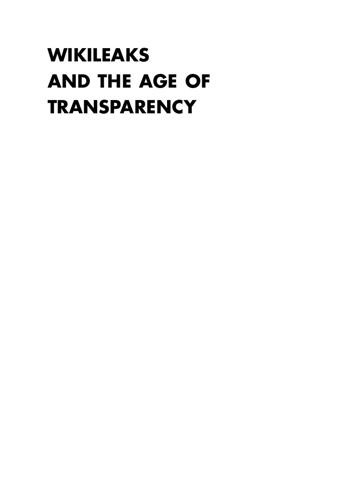
WikiLeaks and the Age of Transparency
by
Micah L. Sifry
Published 19 Feb 2011
“Given that citizens are increasingly dependent on privately owned spaces for our politics and public discourse . . . the fight over how speech should be governed in a democracy is focused increasingly on questions of how private companies should or shouldn’t 180 MICAH L. SIFRY control speech conducted on and across their networks and platforms.”22 One answer to this question has come from a loose knit group of online activists who call themselves “Anonymous.” It’s hard to describe Anonymous, which I suppose is part of the point. Gabriella Coleman, a New York University anthropologist who has studied Anonymous closely, says “there are no leaders, anyone can seemingly join, and participants are spread across the globe, although many of them can be found on any number of Internet Relay Chat Channels where they discuss strategy, plan attacks, crack jokes, and often pose critical commentary on the unfolding events they have just engendered.”23 You might call Anonymous a virtual flash mob, though at times its “members” have gathered physically, as when they organized protests against Scientology in 2008.
…
Rebecca MacKinnon, “WikiLeaks, Amazon and the new threat to Internet speech,” December 2, 2010, http://articles.cnn.com/2010-12-02/opinion/ mackinnon.wikileaks.amazon_1_wikileaks-founder-julian-assangelieberman-youtube. Reuters, “Eric Schmidt Expects Another 10 Years at Google,” January 26, 2011, www.mb.com.ph/articles/300691/eric-schmidt-expects-another10-years-google. MacKinnon Ibid. Gabriella Coleman, “What It’s Like to Participate in Anonymous’ Actions,” The Atlantic, December 20, 2010, www.theatlantic.com/ technology/archive/2010/12/what-its-like-to-participate-in-anonymousactions/67860. Cassell Bryan-Low and Sven Grundberg, “Hackers Rise for WikiLeaks,” The Wall Street Journal, December 8, 2010, http://online.wsj.com/article/ SB10001424052748703493504576007182352309942.html.
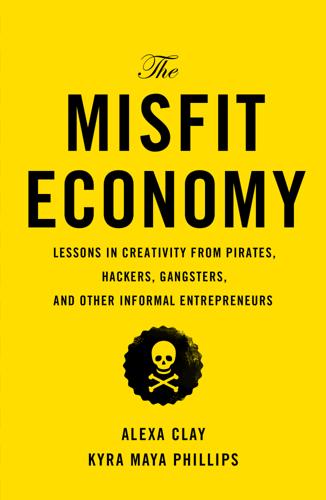
The Misfit Economy: Lessons in Creativity From Pirates, Hackers, Gangsters and Other Informal Entrepreneurs
by
Alexa Clay
and
Kyra Maya Phillips
Published 23 Jun 2015
Raymond in The Jargon File (a bible for hackers everywhere), is: “One who enjoys the intellectual challenge of creatively overcoming or circumventing limitations.” We spoke to several hackers acting under the banner of Anonymous who confirmed this motivation. Anonymous is, as described by anthropologist Gabriella Coleman, a “name employed by various groups of hackers, technologists, activists, human rights advocates, and geeks.”1 They appeared in newspapers worldwide when they took on the Church of Scientology, attacking and defacing the website after a video of Tom Cruise meant for internal promotion leaked to the public.
…
Part of this text appears in an article written by Alexa Clay and Roshan Paul titled “Scaling Social Impact by Giving Away Value,” which appeared in the Stanford Social Innovation Review on September 26, 2011, http://www.ssireview.org/blog/entry/scaling_social_impact_by_giving_away_value. 34. Kurt Wagner, “Facebook Has a Quarter of a Trillion User Photos,” Mashable, September 17, 2013, http://mashable.com/2013/09/16/facebook-photo-uploads/. 4. HACK 1. Gabriella Coleman, “Our Weirdness Is Free,” Triple Canopy, http://canopycanopycanopy.com/contents/our_weirdness_is_free. 2. Aaron Swartz, “Guerilla Open Access Manifesto,” July 2008, https://archive.org/details/GuerillaOpenAccessManifesto. 3. Official statement from family and partner of Aaron Swartz, http://www.rememberaaronsw.com/memories/. 4.
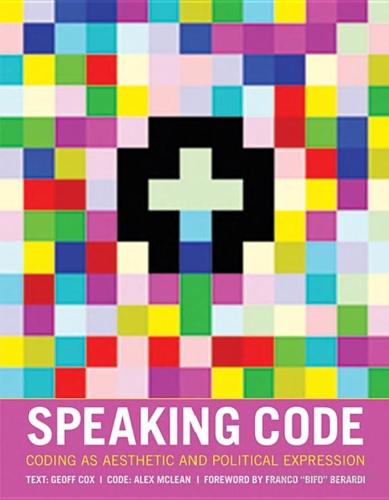
Speaking Code: Coding as Aesthetic and Political Expression
by
Geoff Cox
and
Alex McLean
Published 9 Nov 2012
Like some of the examples introduced in the last section, he suggests processes of “dynamic recombination,” such as the refusal of work, the inven- Coding Publics 93 tion of temporary autonomous zones, and free software initiatives, as potential ways out of the conundrum.116 In “Code Is Speech,” Gabriella Coleman cites examples of programmers engaging deeply in political protest against the dominant regime of intellectual property and defending their sense of autonomy over production, enforcing their “rival liberal legal regime intimately connecting source code to speech.”117 After all that has been said to this point about the claims of the free software movement, perhaps its political position becomes more coherent when considered in line with Arendt’s stress on the relation of collective action to politics.
…
(Access to the source code is a precondition for this.); Freedom 2: The freedom to redistribute copies so you can help your neighbor; Freedom 3: The freedom to improve the program, and release your improvements to the public, so that the whole community benefits. (Access to the source code is a precondition for this.)” Ibid., 41. 53. Gabriella Coleman, “Code Is Speech: Legal Tinkering, Expertise, and Protest among Free and Open Source Software Developers,” Cultural Anthropology 24 (3) (2009): 433–434; available at http://gabriellacoleman.org/. 54. The Universal Declaration of Human Rights (adopted in 1948); available at http://www.un.org/ en/documents/udhr/. 55.
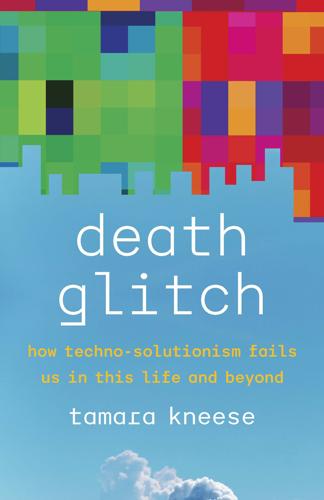
Death Glitch: How Techno-Solutionism Fails Us in This Life and Beyond
by
Tamara Kneese
Published 14 Aug 2023
This project has been a slow-cooking one, starting as a seminar paper and becoming my master’s thesis at the University of Chicago, advised by William Mazzarella, before winding up as my dissertation at New York University’s Department of Media, Culture, and Communication. There my work grew under the wise mentorship of Erica Robles-Anderson and from conversations with many other faculty (Jack Bratich, Gabriella Coleman, Faye Ginsburg, Angela Zito, Marita Sturken, and Finn Brunton), committee members (Mara Mills, Michael Ralph, Alexander Galloway, Fred Turner, and Shannon Lee Dawdy), and fellow students at NYU and beyond. My fellow graduate students were a source of support, especially Kari Hensley, Lana Lin, Carlin Wing, Kavita Kulkarni, Jacob Gaboury, Matthew Hockenberry, Jess Feldman, Liz Koslov, Hi’ilei Hobart, and Xiaochang Li.
…
The WELL depended on face-to-face communication and social gatherings; though it was open to people anywhere, the Bay Area was its central hub. Mandel’s partner, Maria Syndicus, a prominent WELL member known as “Nana” to the community, threw a potluck WELL party in the fall of 1986 in Sausalito.27 There were similar potluck dinners every month. As the anthropologist Gabriella Coleman found in her study of hacker conferences, members of digital subcultures may also meet in person, reinforcing people’s online bonds through face-to-face encounters and informal moments like those experienced while eating together.28 On the WELL, in-person camaraderie translated into other forms of care: participants offered to pay for flights to visit sick relatives and sometimes helped cover the costs of medical treatments as a collective.
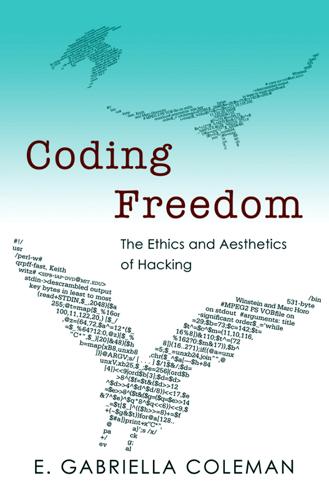
Coding Freedom: The Ethics and Aesthetics of Hacking
by
E. Gabriella Coleman
Published 25 Nov 2012
Copyright © 2013 by Princeton University Press Creative Commons Attribution-NonCommercial-NoDerivs CC BY-NC-ND Requests for permission to modify material from this work should be sent to Permissions, Princeton University Press Published by Princeton University Press, 41 William Street, Princeton, New Jersey 08540 In the United Kingdom: Princeton University Press, 6 Oxford Street, Woodstock, Oxfordshire OX20 1TW press.princeton.edu All Rights Reserved At the time of writing of this book, the references to Internet Web sites (URLs) were accurate. Neither the author nor Princeton University Press is responsible for URLs that may have expired or changed since the manuscript was prepared. Library of Congress Cataloging-in-Publication Data Coleman, E. Gabriella, 1973– Coding freedom : the ethics and aesthetics of hacking / E. Gabriella Coleman. p. cm. Includes bibliographical references and index. ISBN 978-0-691-14460-3 (hbk. : alk. paper)—ISBN 978-0-691-14461-0 (pbk. : alk. paper) ISBN 978-140-08452931—(e-Book) 1. Computer hackers. 2. Computer programmers. 3. Computer programming—Moral and ethical aspects. 4. Computer programming—Social aspects. 5.
…
The prospect of finally meeting (actually in person) people you often interact with, although typically only through the two-dimensional medium of text, is thrilling. Many participants, unable to contain their excitement, skip the first (and maybe second) night of sleep, spending it instead in the company of peers, friends, alcohol, and of course computers. FIGURE 1.2. Debconf10, New York Photo: E. Gabriella Coleman. No respectable hacker/developer con could be called such without the ample presence of a robust network and hundreds of computers—the material collagen indisputably connecting hackers together. Thin laptops, chunky personal computers, reams of cable, fancy digital cameras, and other assorted electronics equipment adorn the physical environment.
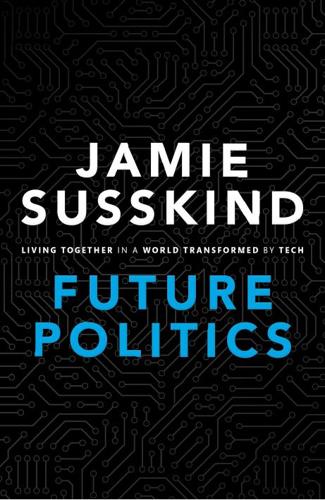
Future Politics: Living Together in a World Transformed by Tech
by
Jamie Susskind
Published 3 Sep 2018
At its broadest it refers to a ‘playful’ and ‘pranking’ attitude among programmers and coders, although governments and corporations engage in it as well. We are concerned here with situations where a person gains unauthorized access to a digital system for political ends. Such hacking, to borrow Gabriella Coleman’s artful phrase, will usually be ‘either in legally dubious waters or at the cusp of new legal meaning’.51 I call it political hacking. Its purpose might be to access information, to expose the functioning of a system, or even to alter or disable a particular system—perhaps for the sake of liberty.
…
Henry David Thoreau, On the Duty of Civil Disobedience (1854) in Political Thought, eds. Michael Rosen and Jonathan Wolff (Oxford: Oxford University Press, 1999), 81. 49. John Rawls, A Theory of Justice (Cambridge, Mass: Harvard University Press, 2003), 319–23. 50. Martin Luther King, Letter from Birmingham City Jail (1963) in Political Thought, 85. 51. E. Gabriella Coleman, Coding Freedom: The Ethics and Aesthetics of Hacking (Princeton: Princeton University Press, 2013), 19. 52. Ibid. 53. Tom Simonite, ‘Pentagon Bot Battle Shows How Computers Can Fix Their Own Flaws’, MIT Technology Review, 4 August 2016 <https://www.technologyreview.com/s/602071/pentagon-botbattle-shows-how-computers-can-fix-their-own-flaws/?
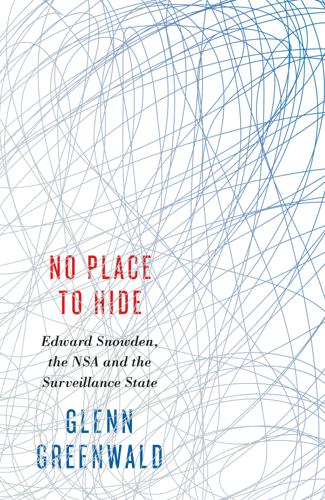
No Place to Hide: Edward Snowden, the NSA, and the U.S. Surveillance State
by
Glenn Greenwald
Published 12 May 2014
Worse still, the category “hacktivists” has no fixed meaning: it can mean the use of programming skills to undermine the security and functioning of the Internet but can also refer to anyone who uses online tools to promote political ideals. That the NSA targets such broad categories of people is tantamount to allowing it to spy on anyone anywhere, including in the United States, whose ideas the government finds threatening. Gabriella Coleman, a specialist on Anonymous at McGill University, said that the group “is not a defined” entity but rather “an idea that mobilizes activists to take collective action and voice political discontent. It is a broad-based global social movement with no centralized or official organized leadership structure.
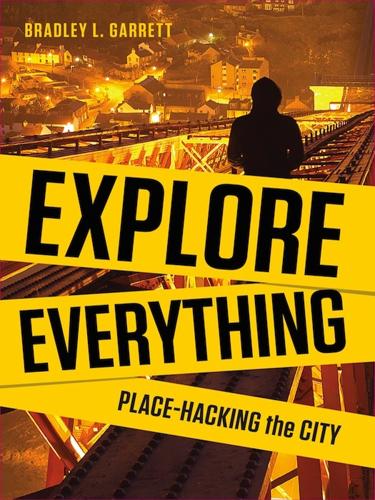
Explore Everything
by
Bradley Garrett
Published 7 Oct 2013
Lewis, Corporate Wasteland (Ithaca, NY: Cornell University Press, 2007), p. 42. 35 Ashley Fantz and Atika Shubert, ‘Wikileaks “Anonymous” Hackers: “We Will Fight” ’, CNN, 10 December 2010. 36 Lucy Osborne, ‘Urban Explorers Enter London’s Landmarks’, Evening Standard, 10 November 2011. 37 David Pinder, ‘Old Paris No More: Geographies of Spectacle and Anti-Spectacle’, Antipode 32: 4 (October 2000). 38 Quentin Stevens, The Ludic City: Exploring the Potetial of Public Spaces (London: Routledge, 2007). 39 Michael Scott, ‘Hacking the Material World’, Wired 1: 3 (July/August 1993). 40 E. Gabriella Coleman and Alex Golub, ‘Hacker Practice: Moral Genres and the Cultural Articulation of Liberalism’, Anthropological Theory 8: 3 (September 2008). 41 Jonas Löwgren, ‘Origins of hacker culture(s)’, 2000, at webzone.k3.mah.se/k3jolo/HackerCultures/origins.htm. 42 Eric S. Raymond, The New Hacker’s Dictionary (Cambridge, MA: MIT Press, 1996), p. 310. 43 ‘The London Underground’, at sleepycity.net/posts/247/The_London_Underground. 44 James Nestor, ‘The Art of Urban Exploration’, San Francisco Chronicle, 16 August 2007. 45 There are about 10,000 registered users, according to Davenport (2011), and Zero, ‘The Anger Tunnel’, Drainor Magazine (2009) suggests there are probably about 3,000 active in the UK. 46 High and Lewis, Corporate Wasteland; Luke Bennett, ‘Bunkerology – A Case Study in the Theory and Practice of Urban Exploration’, Environment and Planning D: Society and Space 29: 3 (2011). 47 George Herbert Mead, Mind, Self, and Society (Chicago, IL: University of Chicago Press, 1934). 48 High and Lewis, Corporate Wasteland, p. 63. 49 Similar to the work of Willis and Jefferson on ‘hippie culture’ in ‘The Cultural Meaning of Drug Use’, in Stuart Hall and Tony Jefferson, eds, Resistance through Rituals: Youth Subcultures in Post-War Britain (London: Routledge, 2006). 50 Charles Arthur and Josh Halliday, ‘Lulzsec Leak: Is This the Beginning of the End for the Hackers?’
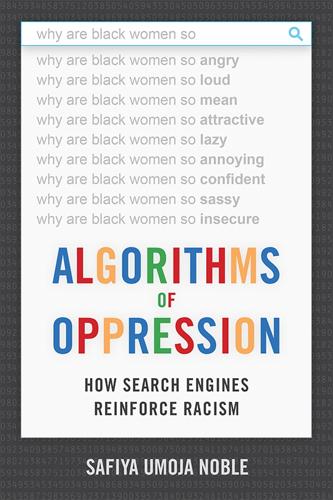
Algorithms of Oppression: How Search Engines Reinforce Racism
by
Safiya Umoja Noble
Published 8 Jan 2018
The website of Dylann Roof’s photos and writings, www.lastrhodesian.com, has been taken down but can be accessed in the Internet Archive at http://web.archive.org/web/20150620135047/http://lastrhodesian.com/data/documents/rtf88.txt. 3. See description of the CCC by the SPLC at www.splcenter.org/get-informed/intelligence-files/groups/council-of-conservative-citizens. 4. Gabriella Coleman, the Wolfe Chair in Scientific and Technological Literacy at McGill University, has written extensively about the activism and disruptions of the hackers known as Anonymous and the cultural and political nature of their work of whistleblowing and hacktivism. See Coleman, 2015. 5. FBI statistics from 2010 show that the majority of crime happens within race.
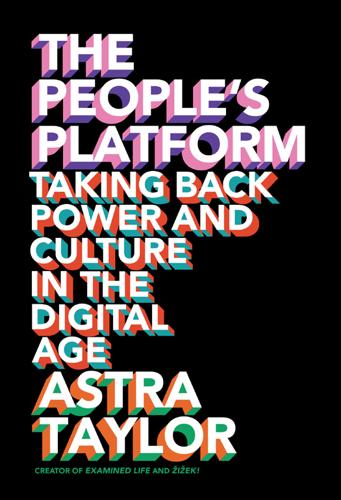
The People's Platform: Taking Back Power and Culture in the Digital Age
by
Astra Taylor
Published 4 Mar 2014
“Islamic law held that he had not intended to steal the book as paper and ink, but the ideas in the book—and unlike the paper and ink, these ideas were not tangible property,” writes historian Carla Hesse. These debates are timeless. Copyleft, it should be noted, is a less grandiose and more complex topic, its politics deftly analyzed by academics including Christopher Kelty (Two Bits: The Cultural Significance of Free Software, North Carolina: Duke University Press, 2008) and Gabriella Coleman (Coding Freedom: The Ethics and Aesthetics of Hacking, New Jersey: Princeton University Press, 2012). Coleman, in particular, makes a compelling case that hacking culture, and by association copyleft, though “politically agnostic,” simultaneously upholds values including equalizing access to information, sharing, and unalienated labor that could be interpreted as progressive: “Hackers’ insistence on never losing access to the fruits of their labor—and indeed actively seeking to share these fruits with others—calls into being Karl Marx’s famous critique of estranged labor” (253). 34.

Other Pandemic: How QAnon Contaminated the World
by
James Ball
Published 19 Jul 2023
So they let it be known that the Church of Scientology had sent this takedown notice, and it caught fire across the internet – and became the latest target of the moment for a trolling operation that quickly escalated on a scale like nothing that had been seen before. The operation quickly caught the eye of an academic researcher and became the start of what grew into years of anthropological study. Now a professor at the anthropology department at Harvard, Gabriella Coleman first came across my radar when I was an early-career journalist following Anonymous, 4chan and the hacktivist movements around it. Whenever you entered an Anonymous discussion thread or chat channel,21 Biella (as she was known) would be there, tolerated as a constant presence by the Anons, like some cool aunt of the collective.
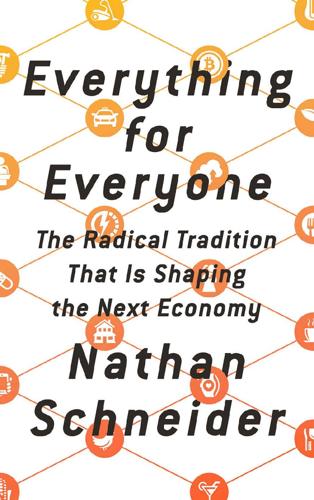
Everything for Everyone: The Radical Tradition That Is Shaping the Next Economy
by
Nathan Schneider
Published 10 Sep 2018
Kelty, Two Bits: The Cultural Significance of Free Software (Duke University Press, 2008). 2. Jodi Dean, “The Communist Horizon,” lecture at No-Space in Brooklyn, New York (July 28, 2011), vimeo.com/27327373. 3. W3Techs, “Usage of Operating Systems for Websites,” w3techs.com/technologies/overview/operating_system/all. 4. E. Gabriella Coleman, Coding Freedom: The Ethics and Aesthetics of Hacking (Princeton University Press, 2012); Christopher M. Kelty, Two Bits; David Bollier, “Inventing the Creative Commons,” in Viral Spiral: How the Commoners Built a Digital Republic of Their Own (New Press, 2008). 5. Theodore Roszak, The Cult of Information: The Folklore of Computers and the True Art of Thinking (Pantheon, 1986), 138–141; see also Fred Turner, From Counterculture to Cyberculture: Stewart Brand, the Whole Earth Network, and the Rise of Digital Utopianism (University of Chicago Press, 2006), and Judy Malloy, ed., Social Media Archeology and Poetics (MIT Press, 2016). 6.
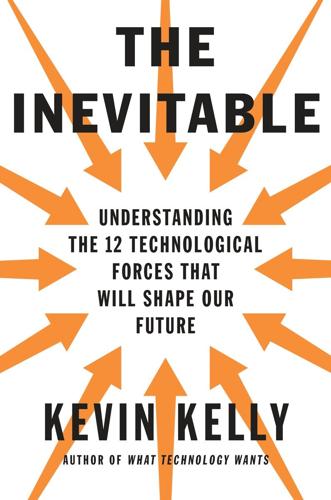
The Inevitable: Understanding the 12 Technological Forces That Will Shape Our Future
by
Kevin Kelly
Published 6 Jun 2016
survey of 2,784 open source developers: Rishab Aiyer Ghosh, Ruediger Glott, Bernhard Krieger, et al., “Free/Libre and Open Source Software: Survey and Study,” International Institute of Infonomics, University of Maastricht, Netherlands, 2002, Figure 35: “Reasons to Join and to Stay in OS/FS Community.” “improve my own damn software”: Gabriella Coleman, “The Political Agnosticism of Free and Open Source Software and the Inadvertent Politics of Contrast,” Anthropological Quarterly 77, no. 3 (2004): 507–19. it had only 30 employees: Gary Wolf, “Why Craigslist Is Such a Mess,” Wired 17(9), August 24, 2009. “as smart as everyone”: Larry Keeley, “Ten Commandments for Success on the Net,” Fast Company, June 30, 1996.
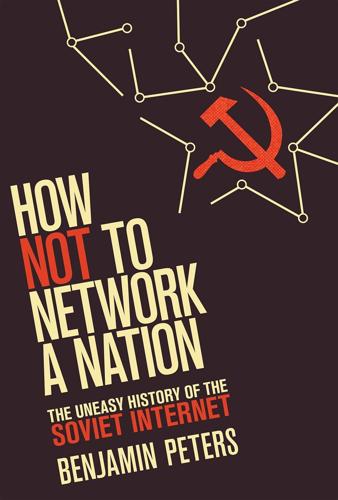
How Not to Network a Nation: The Uneasy History of the Soviet Internet (Information Policy)
by
Benjamin Peters
Published 2 Jun 2016
Previous drafts have benefited from the valuable comments of Geof Bowker, Peter Sachs Collopy, Paul Edwards, Bernard Geoghegan, Lydia Liu, Eden Medina, and Mara Mills on cybernetics and information theory, while Alex Bochannek, Elena Doshlygina, Michael Gordin, Loren Graham, Martin Kragh, Adam Leeds, Ksenia Tatarchenko, and others have taught me much about the Soviet situation. At the risk of leaving many others unnamed, I would also like to thank Colin Agur, Karina Alexanyan, Chris W. Anderson, Mark Andrejevic, Rosemary Avance, Burcu Baykurt, Valerie Belair-Gagnon, Jonah Bossewitch, Gabriella Coleman, Laura DeNardis, Jeffrey Drouin, Maxwell Foxman, Alexander Galloway, Gina Giotta, Abe Gong, Eugene Gorny, Orit Halpern, Lewis Hyde, Andryi Ishchenko, Carolyn Kane, John Kelly, Beth Knobel, Liel Liebovitz, Deborah Lubken, Kembrew McLeod, David Park, Ri Pierce-Grove, Amit Pinchevski, Jefferson Pooley, Erica Robles, Natalia Roudakova, Chris Russil, Jonathan Saunders, Limor Schifman, Trebor Scholz, Steven Schrag, Zohar Sella, Lea Shaver, Bernhard Siegert, Peter Simonson, Thomas Streeter, Ted Striphas, Patrik Svensson, McKenzie Wark, David Weinberger, and Jonathan Zittrain for helpful conversations and comments on drafts over the years.
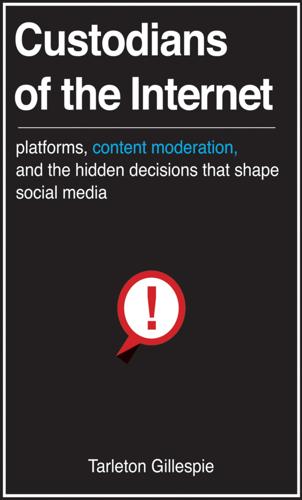
Custodians of the Internet: Platforms, Content Moderation, and the Hidden Decisions That Shape Social Media
by
Tarleton Gillespie
Published 25 Jun 2018
“‘If I Want It, It’s OK’: Usenet and the (Outer) Limits of Free Speech.” Information Society 12 (4): 365–86. PHILLIPS, WHITNEY. 2015. This Is Why We Can’t Have Nice Things: Mapping the Relationship between Online Trolling and Mainstream Culture. Cambridge: MIT Press. PHILLIPS, WHITNEY, JESSICA L. BEYER, AND GABRIELLA COLEMAN. 2017. “Trolling Scholars Debunk the Idea That the Alt-Right’s Shitposters Have Magic Powers.” Motherboard, March 22. https://motherboard.vice.com/en_us/article/z4k549/trolling-scholars-debunk-the-idea-that-the-alt-rights-trolls-have-magic-powers. PLANTIN, JEAN-CHRISTOPHE, CARL LAGOZE, PAUL N.
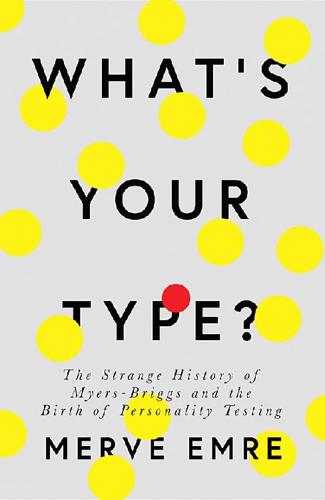
What’s Your Type?
by
Merve Emre
Published 16 Aug 2018
I am grateful beyond measure to Yaniv Soha, Anne Collins, Sarah Porter, and Tom Killingbeck for their keen editorial input and to Daniel Novack and Natalie Cereseto for their valuable legal advice and good humor. I am thankful to everyone at Doubleday U.S., Random House Canada, and HarperCollins U.K. for all the hard work they did to transform my words into an object out in the world. I owe so much to my earliest readers and friends: Sarah Chihaya, Michelle Cho, Ming-Qi Chu, Gabriella Coleman, Maggie Doherty, Eve Fine, Gloria Fisk, Shanon Fitzpatrick, Len Gutkin, Amy Hungerford, Evan Kindley, Sean McCann, Marcel Przymusinski, Sarah Rose, Poulami Roychowdhury, Rachel Greenwald Smith, Richard Jean So, and Rachel Watson. Kasia van Schaik read my manuscript several times, always with an exacting and generous eye.
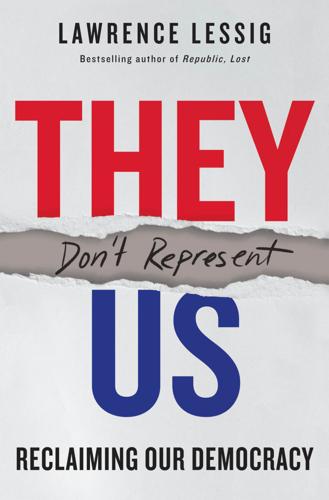
They Don't Represent Us: Reclaiming Our Democracy
by
Lawrence Lessig
Published 5 Nov 2019
In my view, some uses should be forbidden, and some uses should be permitted, and only very few uses should require specific consent by the person whose data is at issue. I have also benefitted enormously here (and elsewhere) from the work of Julie Cohen. See, especially, Julie E. Cohen, “The Surveillance-Innovation Complex: The Irony of the Participatory Turn,” in The Participatory Condition in the Digital Age, ed. Darin Barney, Gabriella Coleman, Christine Ross, Jonathan Sterne, and Tamar Tembeck (Minneapolis: University of Minnesota Press, 2016), 207–26. 93.Tim Wu believes there is a wrong here with a remedy, The Curse of Bigness (New York: Columbia Global Reports, 2018). Others are clear there’s a competitive harm, but unsure about the remedy.
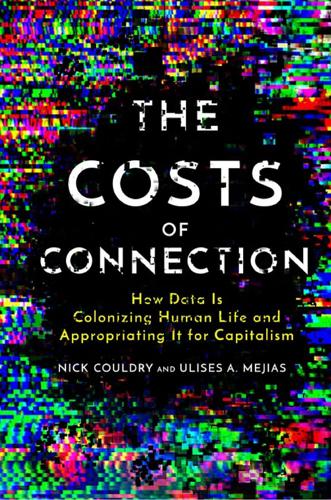
The Costs of Connection: How Data Is Colonizing Human Life and Appropriating It for Capitalism
by
Nick Couldry
and
Ulises A. Mejias
Published 19 Aug 2019
“The Biopolitical Public Domain: The Legal Construction of the Surveillance Economy.” Philosophy & Technology 31, no. 2 (2018): 213–33. . Configuring the Networked Self. New Haven, CT: Yale University Press, 2012. . “The Surveillance–Innovation Complex: The Irony of the Participatory Turn.” In The Participatory Condition in the Digital Age, edited by Darin Barney, Gabriella Coleman, Christine Ross, Jonathan Sterne, and Tamar Tembeck, 207–26. Minneapolis: University of Minnesota Press, 2016. . “What Privacy Is For.” Harvard Law Review 126, no. 7 (2013): 1904–33. Cohen, Noam. “It’s Tracking Your Every Move and You May Not Even Know.” The New York Times, March 26, 2011.
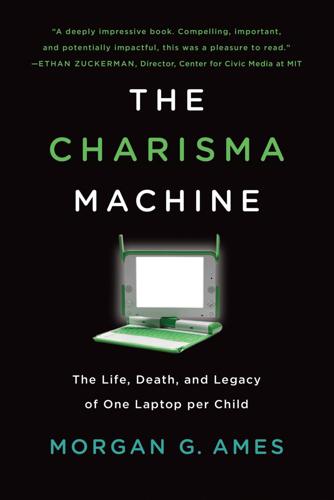
The Charisma Machine: The Life, Death, and Legacy of One Laptop Per Child
by
Morgan G. Ames
Published 19 Nov 2019
More recently, cultural scholar Douglas Thomas has used Levy’s work along with other primary documents and accounts, such as “The Hacker Manifesto,” to further explore the implications of a hacker ethos (see Thomas, Hacker Culture; The Mentor, “Conscience of a Hacker”). This ethos does not exist in a vacuum; other scholars have explored the interplay between these values and the economic, social, and legal conditions in which they exist. Gabriella Coleman examines this context in detail, charting the heterogeneous movements that fall under the umbrella of “hackers” and showing that Levy’s account is specific to MIT rather than being indicative of hackers more broadly—though it is at least legible across much of the technology world (see, e.g., Coleman, “Hacker Conference”; Coleman and Golub, “Hacker Practice”; Coleman, Coding Freedom).
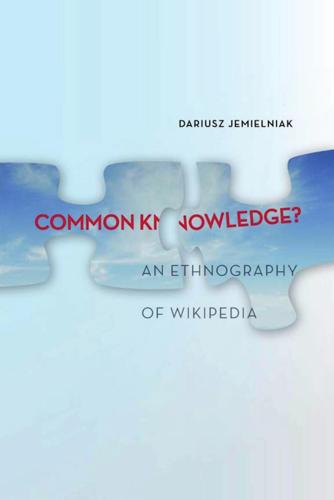
Common Knowledge?: An Ethnography of Wikipedia
by
Dariusz Jemielniak
Published 13 May 2014
“The discussion pages also work to discursively discipline new or dissenting contributors. It is in these spaces that undesirables are ‘sorted out’” (Tkacz, 2010, p. 50). After all, bureaucratic control helps in justifying the dehumanization of certain categories of people, through creating pseudorational, linear scripts of behavior (Bauman, 1989/2000; Burrell, 1997). E. Gabriella Coleman’s description of hackers can be equally applied to Wikipedians: Much in the same way that a guild artisan learned and followed the techniques cultivated by their guild, a hacker enters a world of standardized conventions and preferences and unique social organization when volunteering on a free software project. (2001, p. 29) Newcomers need to prove their usefulness to a Wikipedia but also, through an apprenticeship of a sort, show that they have acquired the knowledge of customs, rituals, and rules.
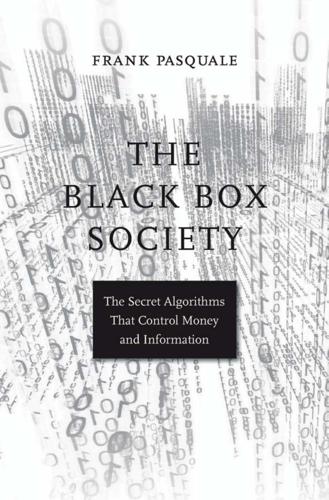
The Black Box Society: The Secret Algorithms That Control Money and Information
by
Frank Pasquale
Published 17 Nov 2014
Don Peck, “They’re Watching You at Work,” The Atlantic, December 2013, 76. When work is largely done in computing environments, the assessment can be very granular. Software engineers are assessed for their contributions to open source projects, with points awarded when others use their code. E. Gabriella Coleman, Coding Freedom: The Ethics and Aesthetics of Hacking (Princeton, NJ: Princeton University Press, 2013) (exploring Debian open source community and assessment of community members’ contributions); Stephen Baker, The Numerati (New York: Houghton-Miffl in, 2008), 33. 87. Mat Honan, “I Flunked My Social Media Background Check.
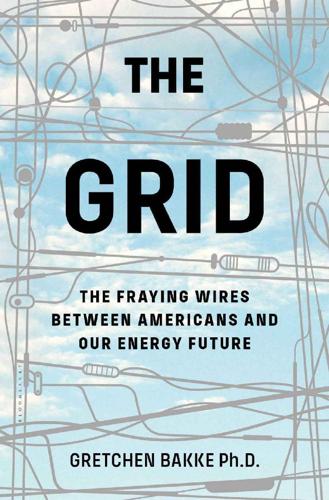
The Grid: The Fraying Wires Between Americans and Our Energy Future
by
Gretchen Bakke
Published 25 Jul 2016
In response to a 2012 accusation by the Daily Mail that the hacking group Anonymous now had the capacity to “shut down the entire U.S. power grid” they said, “that’s right, we’re definitely taking down the power grid. We’ll know we’ve succeeded when all the equipment we use to mount our campaign is rendered completely useless”(Gabriella Coleman, personal conversation, 2012). See also William Pentland, “Push Back: Utility Coalition Fights Federal Cyber Security Standards,” FierceEnergy, September 24, 2015, http://www.fierceenergy.com/story/push-back-utility-coalition-fights-federal-cyber-security-standards/2015-09-24. from renewables by 2030: Senate Bill 350, Clean Energy and Pollution Reduction Act of 2015.